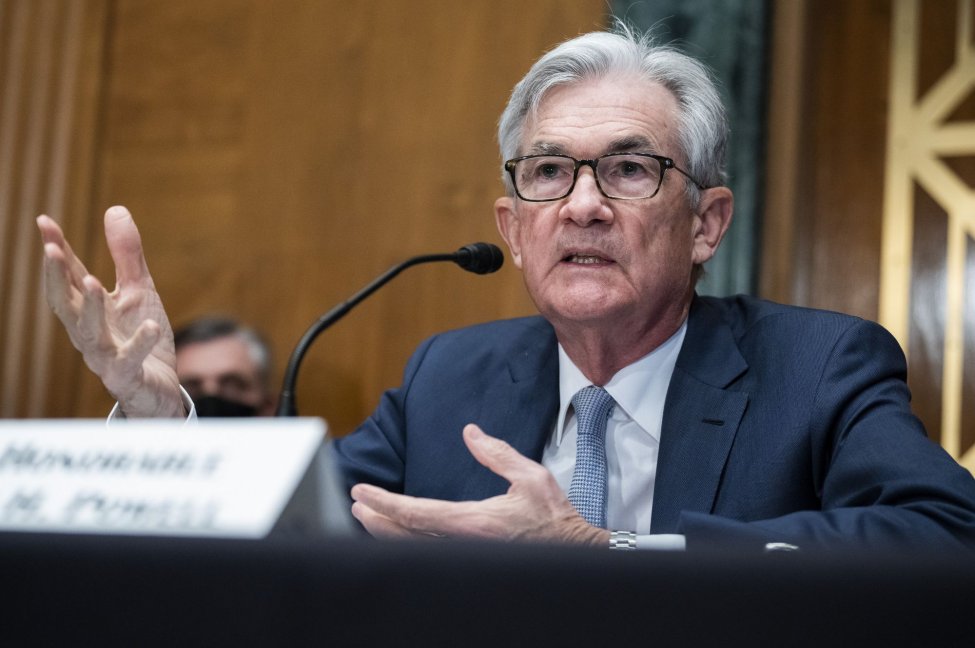Fed Chair Teases Looser Crypto Rules as Washington Eyes Stablecoin Bill
17.04.2025 14:12 2 min. read Alexander Stefanov
Federal Reserve Chair Jerome Powell has hinted that U.S. banks may soon see more flexibility when it comes to handling digital assets—a notable shift from the cautious approach regulators have maintained in recent years.
Speaking at an event hosted by The Economic Club of Chicago, Powell acknowledged the past turbulence in the crypto space, pointing to fraud and high-profile collapses. Despite this, he suggested that digital assets are starting to gain mainstream legitimacy. With this in mind, he noted that current regulatory restrictions—put in place to protect financial institutions and consumers—may be eased going forward.
According to Powell, the goal is to strike a careful balance: opening the door to innovation without compromising the financial system’s integrity. While regulators have historically taken a hardline stance on banks’ involvement in crypto, Powell indicated that a more nuanced approach is on the table—one that supports experimentation while keeping risks in check.
Since Donald Trump returned to office earlier this year, financial regulators have shown a clear pivot in tone. The Federal Deposit Insurance Corporation (FDIC) recently announced plans to roll back outdated crypto guidance and instead give banks more autonomy, allowing them to engage in approved crypto activities without needing prior clearance. Similarly, the Office of the Comptroller of the Currency reaffirmed that crypto-related services are permitted within the federal banking system.
Meanwhile, lawmakers in Congress are making rapid progress on new legislation for stablecoins. Both chambers have advanced bills through committee, and Trump has urged quick passage. Powell welcomed this momentum, emphasizing the importance of oversight for these increasingly popular digital assets.
He described stablecoins as a product with broad potential appeal—one that, if properly regulated, could offer consumers transparency and protection. Powell said he views the legislative developments around stablecoins as encouraging signs of a maturing crypto policy landscape.
-
1
Key Crypto Events to Watch in the Next Months
20.07.2025 22:00 2 min. read -
2
House Clears Path for Landmark Crypto Bills: Vote Set for Thursday
17.07.2025 9:15 2 min. read -
3
Australia Tests CBDCs in 24 Separate Real-World Finance Use Cases
10.07.2025 19:00 2 min. read -
4
U.S. House Passes Sweeping Clarity and GENIUS Acts
17.07.2025 23:29 1 min. read -
5
Senate Confirms Crypto-Linked Nominee Jonathan Gould to Head OCC
11.07.2025 9:00 2 min. read
Nigeria Signals Greenlight for Stablecoin Innovation Under New Regulatory Vision
Nigeria is taking a decisive step toward embracing stablecoin adoption, as the country’s Securities and Exchange Commission (SEC) outlined its readiness to support digital currency innovation—under clear regulatory conditions.
South Korea Urges Asset Managers to Limit Exposure to Crypto Stock Like Coinbase,MicroStrategy
South Korea’s top financial watchdog has issued informal guidance urging local asset managers to scale back their investments in crypto-related stocks, according to a Korean Herald report.
SEC Reverses Bitwise ETF Approval Just Hours After Greenlight
In a surprising move on Tuesday, the U.S. Securities and Exchange Commission (SEC) initially approved Bitwise’s proposal to convert its cryptocurrency index fund into a full-fledged exchange-traded fund (ETF)—only to halt the decision just hours later.
Senate Republicans Unveil Crypto Market Bill to Expand CLARITY Act
Senators Tim Scott, Cynthia Lummis, Bill Hagerty, and Bernie Moreno (R-OH) have released a discussion draft of a new digital asset market structure bill—framed as the Senate counterpart to the CLARITY Act.
-
1
Key Crypto Events to Watch in the Next Months
20.07.2025 22:00 2 min. read -
2
House Clears Path for Landmark Crypto Bills: Vote Set for Thursday
17.07.2025 9:15 2 min. read -
3
Australia Tests CBDCs in 24 Separate Real-World Finance Use Cases
10.07.2025 19:00 2 min. read -
4
U.S. House Passes Sweeping Clarity and GENIUS Acts
17.07.2025 23:29 1 min. read -
5
Senate Confirms Crypto-Linked Nominee Jonathan Gould to Head OCC
11.07.2025 9:00 2 min. read


